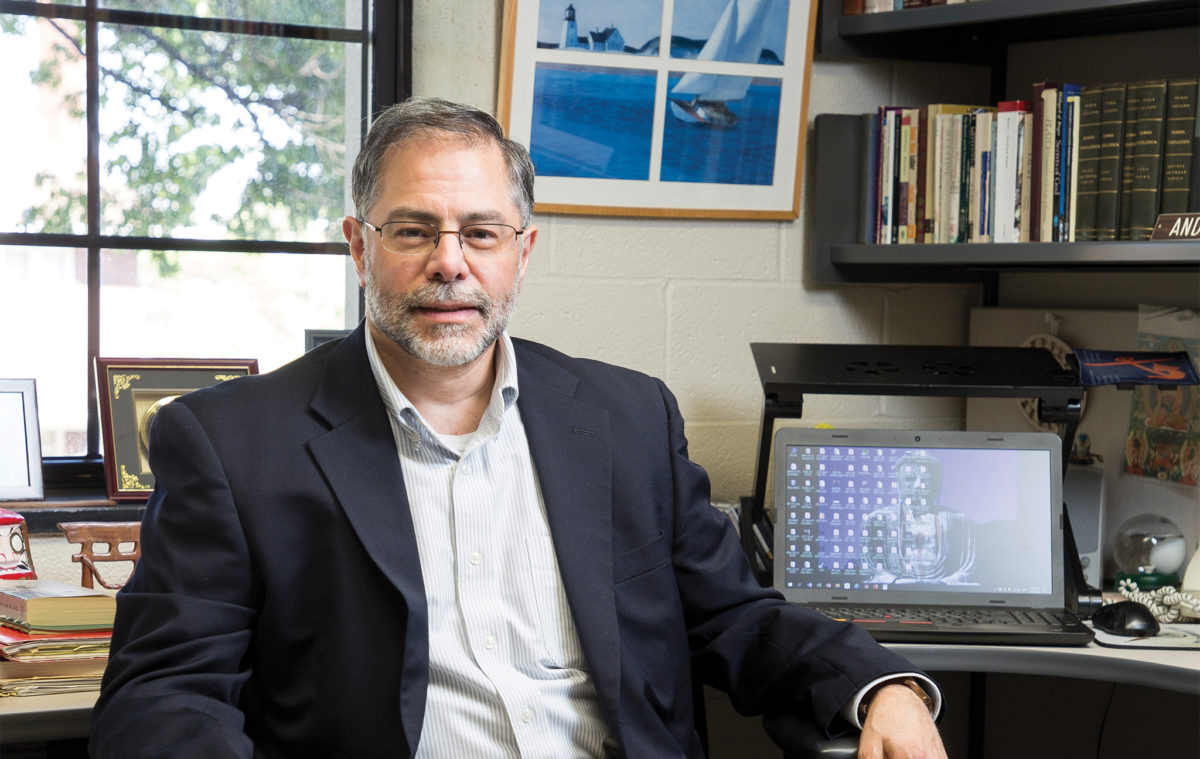East and West, Body and Mind, T’ai Chi and Philosophy
Andrew Dell’olio, Ph.D. | Professor of Philosophy
When Dr. Andrew Dell’Olio was a senior at Rutgers University, a professor there taught t’ai chi ch’uan in the campus square. Though Dell’Olio didn’t join in, he recalls observing the meditative martial art; he found it quite beautiful. Within a year, the budding philosophy professor, by then a graduate student at Columbia, had enrolled in a t’ai chi school founded by a senior student of Cheng Man-ch’ing, the man most responsible for spreading t’ai chi to the West. It was then that Dell’Olio’s future blending of Western and Eastern philosophical priorities started to graft together.
While his main professional specialties have been ethics, the philosophy of religion and the history of Western philosophy — especially the moral philosophy of Thomas Aquinas, and the changes in Anglo-American philosophy in the early part of the 20th century — Dell’Olio also has an abiding interest in Asian philosophy. “I think, in general, knowledge of other traditions helps illuminate one’s own tradition and vice versa,” says Dell’Olio, who directs Hope’s Asian Studies program.
Committed to disciplined training of both the body and the mind, he has taught t’ai chi in Hope’s Wellness Program since 2007.
“T’ai chi helps one develop balance, mindfulness, sensitivity to others, gentleness, integration of emotion and thought, and harmony with the energy of the earth and divine source of this energy,” he says. “These are qualities that one aims for in moral self-cultivation.”
They are qualities of the soul, or spirit, that Eastern and Western philosophies traditionally aspire to achieve, too. Dell’Olio made that the theme of World Philosophies, a class he developed with the support of a Mellon Grand Challenges Initiative grant and taught for the first time in 2019. He folded the practice of t’ai chi into the coursework.
As Hope’s philosophy professors prepared to host a fall 2019 conference of the Society of Christian Philosophers on the theme “Uniting Mind and Body: Cognition, Embodiment and Liturgy,” Dell’Olio began work on an article on t’ai chi and moral philosophy.
“The notion of ‘embodied cognition’ has caught the attention of contemporary philosophers. Drawing on recent work in both the philosophy of mind and neuroscience, philosophers are exploring the bodily dimensions of our mental processes, including our moral judgments,” he explains. “I hope to explore ways that the literature on embodied cognition can help us better understand how the practice of t’ai chi can assist moral development — and in turn, how t’ai chi can shed light on the nature of embodied cognition. It strikes me as a nice blending of both East and West, old and new.”

